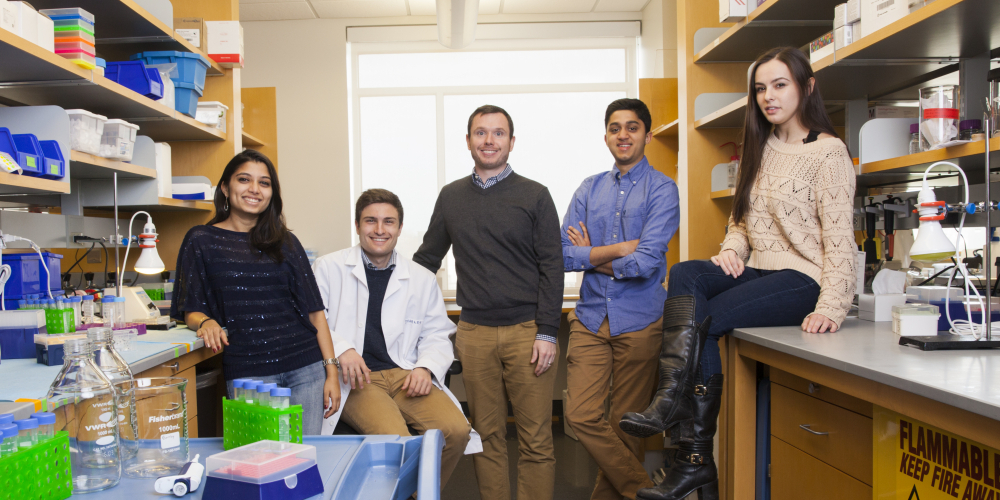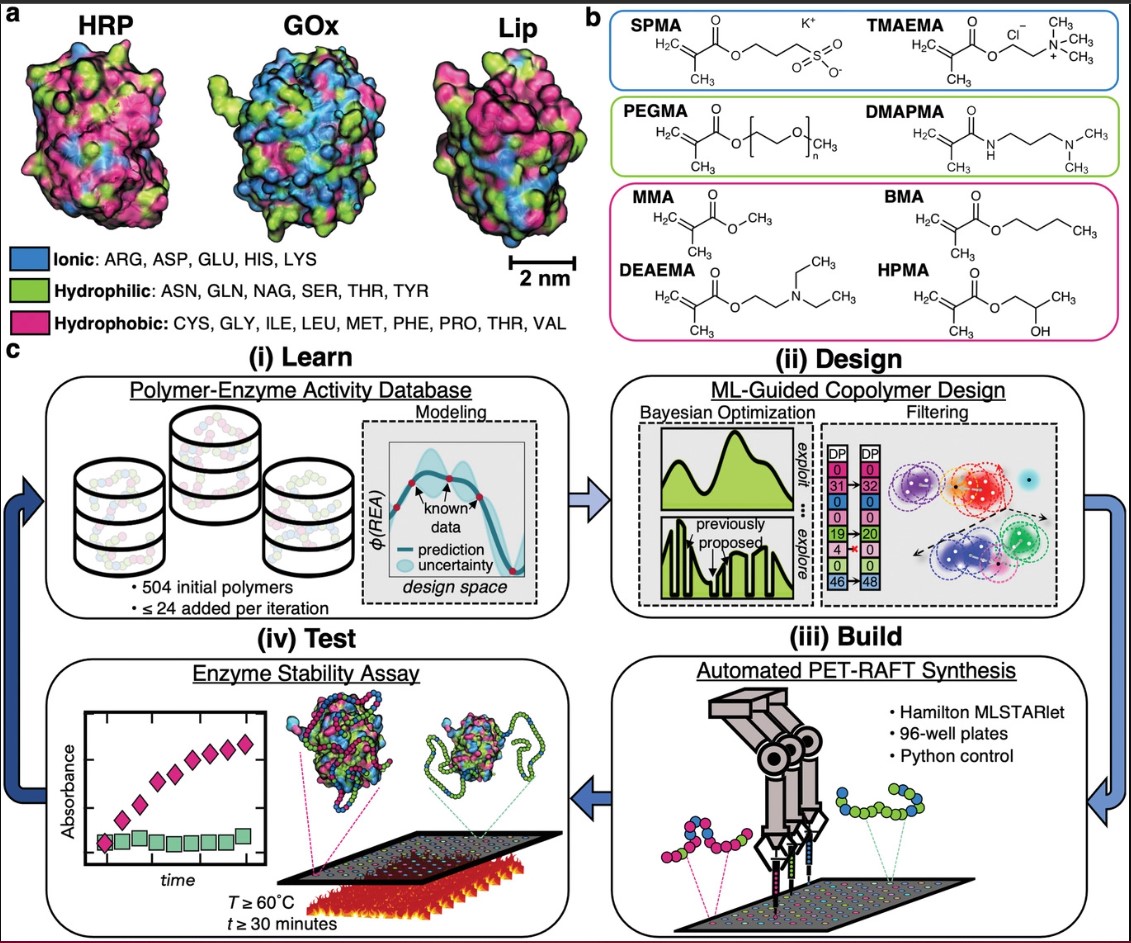In his new faculty position at Rutgers University, Adam is pioneering his highly innovative approach to data-driven biomaterials design.
Data science is now considered the 4th science paradigm following computational science which has dominated the previous 50 years. Statistical tools such as artificial intelligence / machine learning (AI/ML) already impact our daily lives through search algorithms, computer vision, genomics, self-driving cars, and many other information technology resources. However, digitalization of materials chemistry has substantially lagged. This is a lost opportunity as data-driven materials design has the potential to drastically increase discovery efficiency while simultaneously unlocking new complexity that human-based rational design struggles to identify. Therefore, there is a major unmet need to apply these powerful tools to new materials science applications including biomaterials science and drug delivery.
In his work recently presented at CRS2022, the group uses active ML to rapidly design copolymers to form thermostable polymer-protein hybrids (PPHs) with model enzymes. To efficiently acquire data, they use automated oxygen-tolerant radical polymerization for copolymer synthesis and develop a facile, thermal-stability assay to characterize PPHs. With this platform and five iterations of active learning for each enzyme, they successfully identify PPHs with significant enzyme activity. They demonstrate that their strategy appropriately adapts data acquisition to yield chemically distinct sets of top-performing copolymers for each enzyme. Post hoc analysis of our data and ML models reveals important relationships between specific copolymer chemistries and PPH stability, while biophysical characterization of our most efficacious PPHs provide mechanistic insight into how copolymers may preserve enzyme function under thermal stress. Overall, this framework will automate and accelerate the design of copolymers for stable PPHs across applications
Adam Gormley
Adam Gormley is an Assistant Professor of Biomedical Engineering at Rutgers University and an expert in nanobiomaterials. Prior to Rutgers, Adam was a Marie Skłodowska-Curie Research Fellow at the Karolinska Institutet (2016) and a Whitaker International Scholar at Imperial College London (2012-2015) in the laboratory of Professor Molly Stevens. He obtained his PhD in Bioengineering from the University of Utah in the laboratory of Professor Hamid Ghandehari (2012), and a BS in Mechanical Engineering from Lehigh University (2006). In January 2017, he started the Gormley Lab which seeks to develop bioactive nanobiomaterials using robotics and artificial intelligence. Dr. Gormley is currently the PI of an NIH R35 Outstanding Investigator Award, an NSF CBET Award, and an NSF Designing Materials to Revolutionize and Engineer our Future (DMREF) Award.
Dr. Gormley envisions a future where some laboratories will be fully automated and even self-driving. This is an exciting concept that strategically combines laboratory automation and AI/ML for autonomous materials discovery. Therefore, Dr. Gormley’s lab is working hard to help realize this vision for the biomaterials and drug delivery community. This journey starts at the University of Utah as a PhD student where he initially studied the biomechanics of lumbar disc disease. This focus built on his background in mechanical engineering from Lehigh University. Soon, Dr. Gormley discovered his true passion for biomaterials science and drug delivery and joined the lab of Dr. Hamid Ghandehari where he first learned materials chemistry. However, this transition to biomaterials chemistry and drug delivery was not easy for a mechanical engineer. To catch up, he spent hours at the library reading textbooks on organic, inorganic, and colloidal chemistry. Over time, he managed to become proficient enough at polymer and nanoparticle chemistry to develop a novel laser-guided nanomedicine for prostate cancer therapy.
Following four years of postdoctoral training in Europe, Dr. Gormley joined Rutgers University as an Assistant Professor of Biomedical Engineering. Within a few years, his lab quickly grew and found itself in the lucky position of needing automated systems for materials chemistry. This was lucky because Dr. Gormley had the skills as a mechanical engineer to build and program such systems. This set off a flurry of activity which ultimately landed his lab on the forefront of developing a self-driving biomaterials lab driven by AI/ML. The real key to this, however, are his incredible students whose passion for the work is inspiring. As a naturally enthusiastic person, Dr. Gormley prefers to recruit people who can feed and even build on an enthusiastic lab culture. In doing so, the lab has developed into a fun culture of play, hard work, and innovative science and engineering. As these students near graduation, his best advice is to follow their passion and remain enthusiastic. If a person loves their job and feels good about the work they are doing, then there is no doubt that person will be successful. He tells his students not to worry too much about long-term career goals as careers naturally evolve over time as long as they continue to work hard. This culture of living in the moment and enjoying the journey through science is the key to remaining on the cutting edge.

